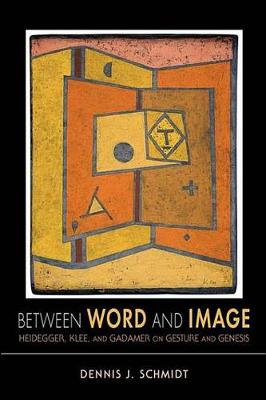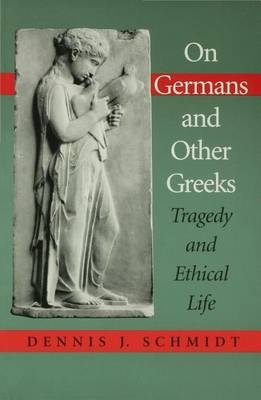Studies in Continental Thought
4 total works
Engagement with the image has played a decisive role in the formulation of the very idea of philosophy since Plato. Identifying pivotal moments in the history of philosophy, Dennis J. Schmidt develops the question of philosophy's regard of the image in thinking by considering painting-where the image most clearly calls attention to itself as an image. Focusing on Heidegger and the work of Paul Klee, Schmidt pursues larger issues in the relationship between word, image, and truth. As he investigates alternative ways of thinking about truth through word and image, Schmidt shows how the form of art can indeed possess the capacity to change its viewers.
On Germans and Other Greeks
Tragedy and Ethical Life
Dennis J. Schmidt
What Greek tragedy and German philosophy reveal about the meaning of art for ethical life.
"Schmidt's investigation of tragedy is a highly significant, powerful work, one with far-reaching consequences. It bears on our understanding of the role of the arts and of philosophical thinking in our culture."
-Rodolphe Gasche
In this illuminating work, Dennis J. Schmidt examines tragedy as one of the highest forms of human expression for both the ancients and the moderns. While uncovering the specifically Greek nature of tragedy as an exploration of how to live an ethical life, Schmidt's elegant and penetrating readings of Greek texts show that it was the beauty of Greek tragic art that led Kant and other German thinkers to appreciate the relationship between tragedy and ethics. The Germans, however, gave this relationship a distinctly German interpretation. Through the Greeks, the Germans reflected on the enigmas of ethical life and asked innovative questions about how to live an ethical life outside of the typical assumptions and restrictions of traditional Western metaphysics. Schmidt's engagements with Schelling, Hegel, Hoelderlin, Nietzsche, and Heidegger show how German philosophical appropriations of Greek tragedy conceived of ethics as moving beyond the struggle between good and evil toward the discovery of community truths. Enlisting a wide range of literary and philosophical texts, some translated into English for the first time, Schmidt reveals that contemporary notions of tragedy, art, ethics, and truth are intimately linked to the Greeks.
Dennis J. Schmidt is Professor of Philosophy at Villanova University. He is author of The Ubiquity of the Finite and translator of Ernst Bloch's Natural Law and Human Dignity.
Studies in Continental Thought-John Sallis, general editor May 2001
432 pages, 6 1/8 x 9 1/4, bibl., index
cloth 0-253-33868-9 $49.95 L / GBP38.00
paper 0-253-21443-2 $24.95 s / GBP18.95
Between Word and Image: Heidegger, Klee, and Gadamer on Gesture and Genesis
by Dennis J. Schmidt


